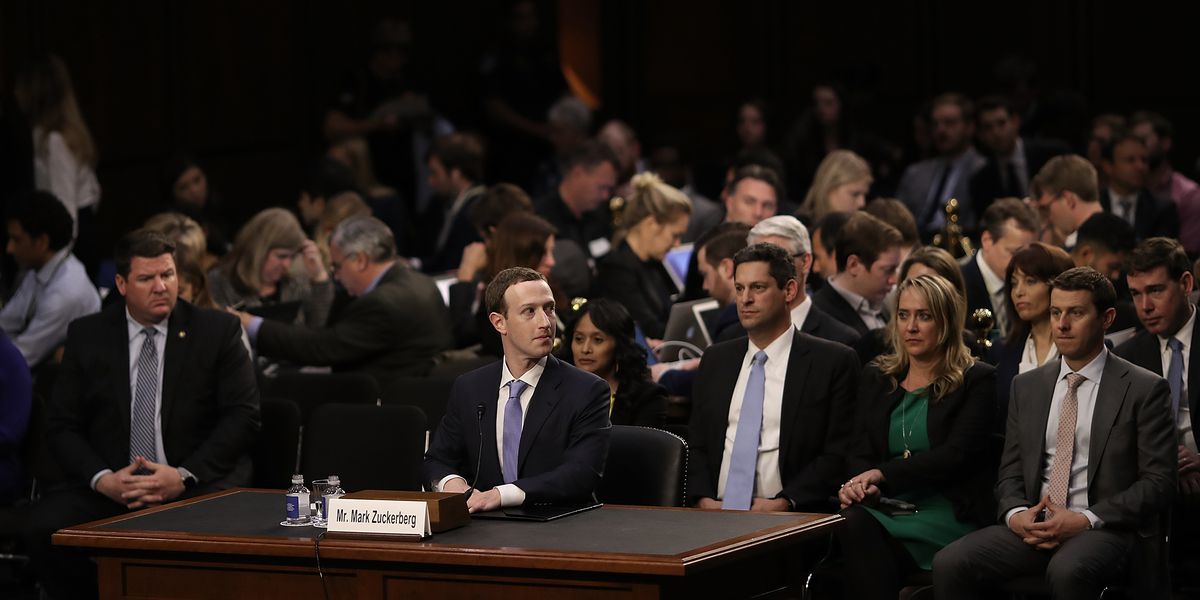By: Kurt Wagner – recode.net – April 11, 2018
Mark Zuckerberg answered questions about Facebook’s data collection and privacy policies this week from almost 100 different politicians in nearly 10 hours of public testimony.
The hearings had it all. One lawmaker literally held up the U.S. Constitution at Zuckerberg and recited the First Amendment. Another asked him about his college hot-or-not service, Facemash. Others asked more nuanced questions about how Facebook moderates content on its service, while still others didn’t seem to understand how Facebook operates at all.
It was a lot to take in, and we have coverage from all 10 hours of testimony here and here.
If you want an abbreviated version of what Zuckerberg talked about in Washington, D.C., this week and what lies in store for Facebook (spoiler: regulation), here’s a summary of the plot points you need to know.
Almost everybody wants to regulate Facebook
One thing that became clear over the past two days is that almost every politician in Washington sounds like they want to regulate Facebook. It was one of the most dominant questions throughout the 10 hours of testimony, with numerous politicians asking Zuckerberg if he would commit to helping lawmakers create some form of new rules around data collection and privacy. The mere fact that politicians are asking for Zuckerberg’s help in drafting new laws could certainly work in Facebook’s favor.
“Here’s what’s going to happen — there are going to be a whole bunch of bills introduced to regulate Facebook,” Sen. John Kennedy, R-La., told Zuckerberg on Tuesday. “It’s up to you whether they pass or not. You can go back home [and] spend $10 million on lobbyists and fight us, or you can go back home and help us solve this problem.”
It’s still unclear what any regulation of Facebook would actually look like
What regulation might look like is still up in the air. We heard politicians talk about three separate bills throughout the two days: The Honest Ads Act to regulate online political advertising; The Consent Act, which would require users to opt in to share information with tech companies versus sharing it by default; and a similar sounding bill called the Browser Act.
There doesn’t appear to be a consensus around any one idea. The suggestion of changing Facebook’s default privacy settings from opt-out to opt-in, meaning the company would need to ask for permission to collect data right away instead of collecting it by default, seems like it would be the most dangerous to Facebook. It would severely limit the amount of data they can collect about people, thus hurting their business.
But even then, there’s no saying that would get the support needed to become more than a proposal.
“We need to assess what we heard and get answers to questions that were not answered, and then evaluate who else we need to hear from,” Congressman Greg Walden, R-Ore., chairman of the House Commerce Committee, told reporters after the hearing on Wednesday. “If you put the consumer first, and the companies put the consumer first, you won’t have a huge need for additional regulatory authority. But if you don’t, then we will have to step in.”
Zuckerberg says he thinks the new EU privacy regulations are a good thing
Zuckerberg promised Congress that Facebook will roll out the strict GDPR privacy regulations that will be required in the EU beginning next month to all of Facebook’s users around the world. That’s smart. That kind of approach might limit the desire for more formal regulation in the U.S. if Facebook is seen as already “regulating” itself.
Zuckerberg even said he thought GDPR was a good idea. He might as well — the regulations are coming whether he supports them or not.
“I think the GDPR, in general, is going to be a very positive step for the internet,” he said on Wednesday.
To see the remainder of this article, click read more.
![]() Source: Mark Zuckerberg testimony: Congress doesn’t know how Facebook works
Source: Mark Zuckerberg testimony: Congress doesn’t know how Facebook works
 Listen Online
Listen Online Watch Online
Watch Online Find a Station in Your Area
Find a Station in Your Area







 Listen Now
Listen Now Watch Online
Watch Online
